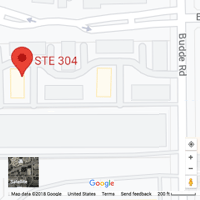B-1 Business Visitor Visas
A B-1 Business Visitor Visa is a nonimmigrant visa that allows a person to travel to the United States during the validity of the visa to accomplish work for a U.S. employer. A B-1 business visitor may be admitted to the United States for up to a maximum of 6 months. However, Customs and Border Patrol officers will admit a business visitor for the period of time necessary to conduct the specified business, and the B-1 business visitor may apply to extend his or her authorized stay, provided there is a business need or justification for the extension request.
B-2 Visitor Visas
A B-2 Visitor Visa is a nonimmigrant visa that allows a person to travel to the United States for pleasure during the validity of the visa. The B-2 visitor visa allows an individual to enter the United States for a short period of time for activities of a recreational character, including tourism; amusement; visits with friends or relatives; or activities of a fraternal, social, or service nature. B-2 visas are also issued to individuals who are coming to the United States to undergo medical treatment.
A B-2 visitor may be admitted to the United States for not more than 1 year. He or she may be granted extensions in increments of not more than 6 months at a time, though certain dependents of nonimmigrant visa holders may receive extensions for up to 1 year. A B-2 visitor must maintain a foreign residence abroad to which the individual intends to return at the end of the authorized period of stay in the United States. Persons on a B-2 visa are not allowed to study or work during their stay in the United States.
F-1 Student Visas
The F-1 Student Visa allows a person to enter the United States as a full-time student at an accredited college, university, seminary, conservatory, academic high school, elementary school, or other academic institution or in a language-training program. It is a nonimmigrant visa. Dependents of F-1 students may obtain F-2 status, which allows the dependent to accompany the F-1 student to the United States, but F-2 status does not provide work authorization for the dependent.
While the primary purpose of the F-1 visa is to study in the United States, F-1 students may be eligible for employment. F-1 students may accept on-campus employment subject to certain conditions and restrictions. After the first academic year, F-1 students may engage in limited types of off-campus employment in their field of study.
K-1 Fiancé(e) Visa
The K-1 visa classification is known as the “fiancé(e)” visa. It applies to an individual who is engaged to a U.S. citizen, and who wishes to enter the United States to marry the U.S. citizen within 90 days of arrival. In general, the foreign-citizen fiancé(e) and U.S. citizen sponsor must have met in person within the past 2 years. To qualify, the U.S. citizen and the fiancé(e) must prove that they have a bona fide relationship.
The fiancé(e) visa petition is valid for 4 months from the date of approval. If approved, the K-1 visa is valid for a single entry into the United States for a maximum period of 6 months from the date of issuance. Any unmarried children under the age of 21 of a K-1 visa applicant are eligible to apply for a K-2 dependent status and enter the United States with the K-1 applicant.
Following entry into the United States, K-1 visa holders can apply for lawful permanent residence. However, they cannot apply to change their status to any other nonimmigrant classification or to extend their K-1 status.
K-3 Foreign-Citizen Spouse of a U.S. Citizen Visa
Immigration law allows the foreign national spouse of a U.S. citizen and his or her minor children to be admitted to the United States as K-3 nonimmigrants while the applicants are awaiting the adjudication of a Petition for Alien Relative. It also allows them to obtain employment authorization while the Petition is pending. To qualify for a K-3 visa, the applicant must be legally married to a U.S. citizen and be the beneficiary of a Form I-130 Immigrant Petition for Alien Relative filed by the foreign national’s U.S. citizen spouse.
The K-3 visa is valid for two years and for multiple entries into the United States. Prior to the expiration of the visa, K-3 visa holders must apply for permanent residency. K-3 visa holders cannot apply to change status to a different nonimmigrant status or apply for extension of K-3 status.
Diversity Visa Lottery
The Diversity Immigrant Visa Program makes up to 50,000 immigrant visas available annually to individuals who are from countries with low rates of immigration to the United States. The approved visas are drawn from a random selection of all entries. The DV Program requires the “principal” DV applicant to have a high school education, or its equivalent, or 2 years of qualifying work experience.
Contact us today: 713.955.2065
Hablamos Español.


